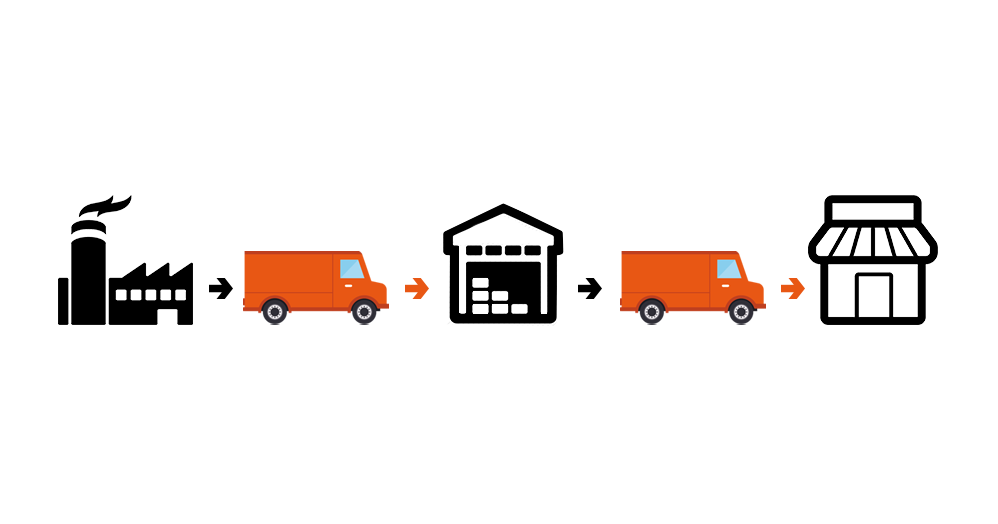Third Party Fulfillment Partners for E-Commerce Companies

“I don’t create companies for the sake of creating companies, but to get things done.” Elon Musk, CEO & CTO of SpaceX, Investor in PayPal
Third-party fulfillment providers (3PL) typically work on managing inventory, packing & packaging, handling orders, and shipping products to the end customer. For this reason, they can be called 3PL providers or fulfillment centers.
Why do E-Commerce companies require 3PLs?
Though every online store starts with a small idea or a unique concept, you’ll be surprised to see how fast this line of business can grow, if the examples of Amazon, Flipkart, and Shopify, etc are anything to go by. Incoming orders can increase in leaps and bounds, leaving these companies staggering with the sheer logistics of operational issues. It’s not only about efficient order management and warehouse software applications. It’s more to do with the physical aspects of handling labor, managing a growing warehouse, transporting and delivering products on time safely, and timely.
You also need a deep pocket to finance an ever-increasing venture and insurance protection.
Thus e-commerce companies constantly face the challenge of growing too fast too quickly or stagnating with a huge warehouse full of inventory and insufficient sales.
Let’s accept the fact that no company is strong at everything. Like we said, having a unique idea is not enough. We should also have the logistics tied up from all ends, both defined and undefined. Or the unexpected.
Therefore, it makes sense to play the game smart and integrate logistics headaches to specialist 3PLs.
What are the advantages of engaging 3Pls?
For one, e-companies can better utilize their time and effort in developing a solid customer base, exploring new product ranges, and marketing their services, instead of investing effort in trying to fulfill a large and growing number of orders. This task can be simply unproductive and a drain on huge time and market presence.
♣ Shift it to the experts!
It’s always difficult to predict the volume of business in today’s dynamic times. What should be the warehouse space? How many warehouses should we have across the country? Having a small warehouse with insufficient handling facilities can be a deterrent to growth. On the other hand, what happens when there is a huge investment in warehouses across the region and large volumes of inventory? We’ve to make sure that there is optimum utilization of space, resources, and logistics.
♣ Pay as you grow for your infrastructure!
Thirdly, you can entrust your day-to-day activities to fulfillment providers who know their jobs, the best. This includes vast experience, geographical knowledge of the region, and trained resources who are quick efficient, and flexible. If we’ve products that sell across the country, 3PLs with a geographical spread of fulfillment centers can offer better expertise, and value for money. Having the access to various fulfillment centers can reduce transpiration times and costs.
Shift to outsourcing fulfillment.
6 Reasons why outsourcing fulfillment is beneficial to your business
- ⇒ Saving time. Entrusting day-to-day operations and repetitive tasks to specialists will free up the time for a company to focus on the essentials of core functions and leave the support activities to specialist providers.
- ⇒ Reducing costs. Outsourcing helps us to reduce (uncertain) overheads of labor and operations, and follow the flexi-costing model.
- ⇒ Saving on technology and infrastructure. We don’t need to invest on infrastructure, business processes, and technology. It’s a better idea to leave the support functions to specialists. Because, the larger a company, the more is the time spent on unproductive tasks.
- ⇒ Capitalizing on expertise. Instead of spending time and effort on training employees, an e-commerce store can better manage its operations by outsourcing specialist tasks to the experts. This also ushers productivity and efficiency to the business.
- ⇒ Reducing risks. Outsourcing helps companies to spread their risks. Compartmentalizing operations helps us to focus on core skills and expertise, rather than adopting a seamless but potentially risk-prone environment.
- ⇒ Keeping flexible staff strength. If the nature of business is seasonal or cyclical, permanent staff will be an overhead that cannot be avoided. Instead, outsourcing logistical operations can bring expenses down, as well optimum staff deployment. Companies can always add more staff as required, as opposed to downsizing resources, through no fault of theirs.
Thus an efficient 3PL provider can bridge the huge chasm between customers, orders, inventory, products, suppliers, shipping, and sales.
Reach Us At
Corporate Address
5th Floor, Vijay 66 North, Jubilee Enclave, HITEC City,Hyderabad, Telangana 500081
About Company
© 2024 Shift Logistics Private Limited all rights reserved